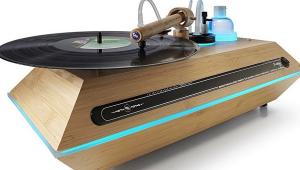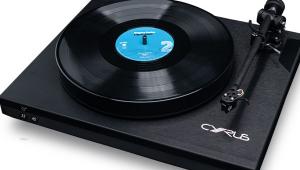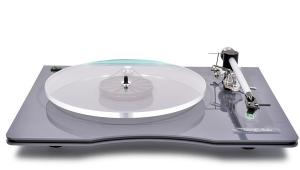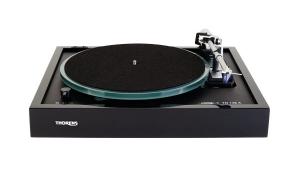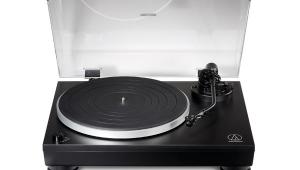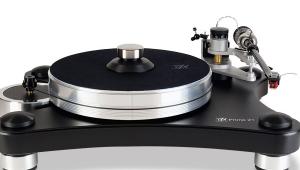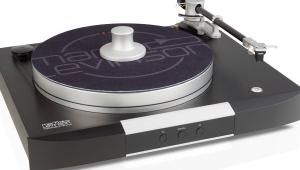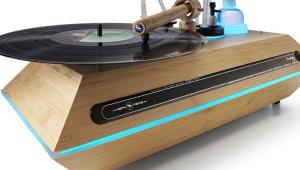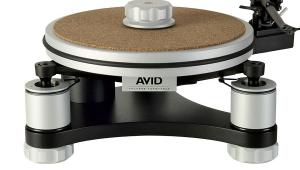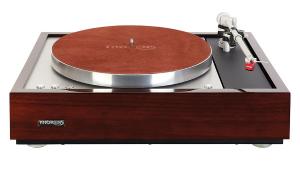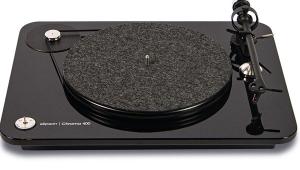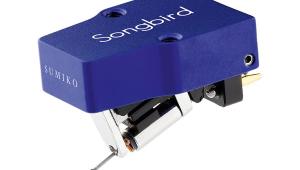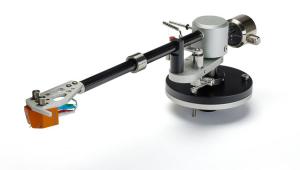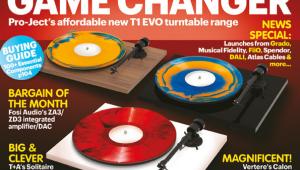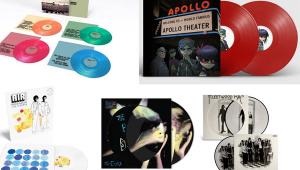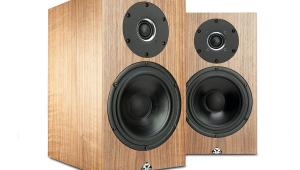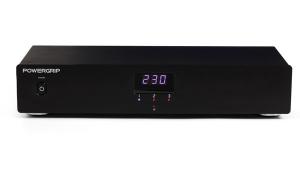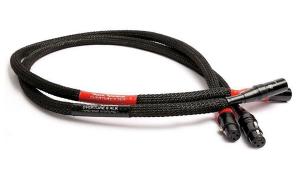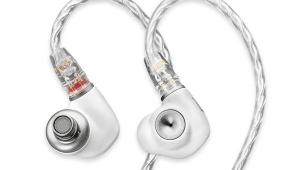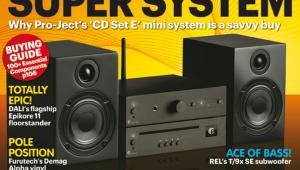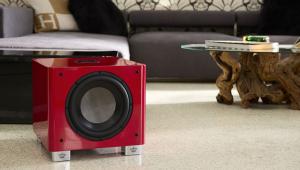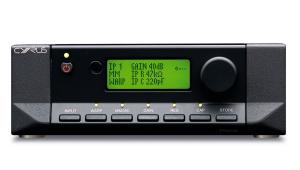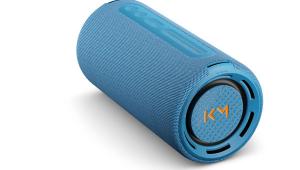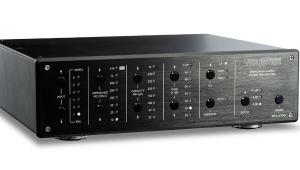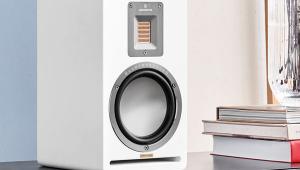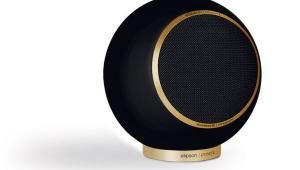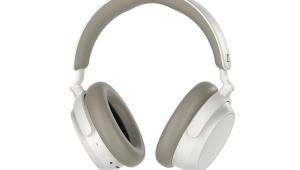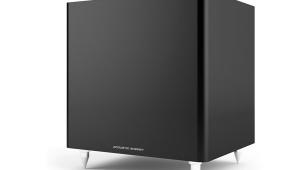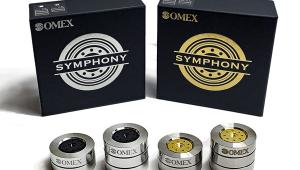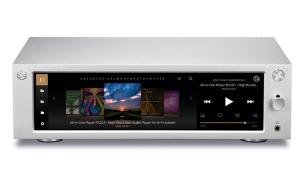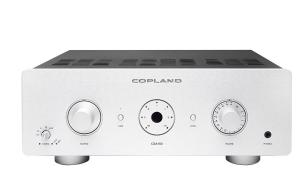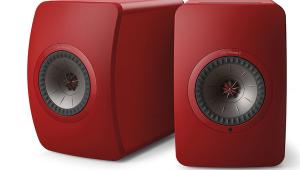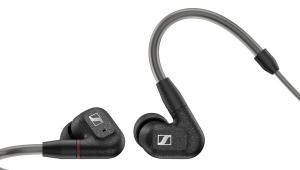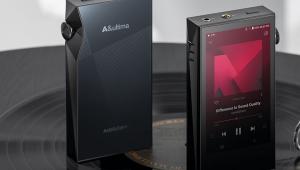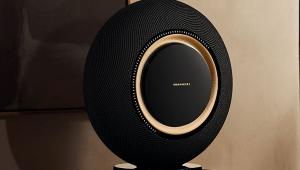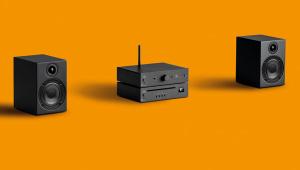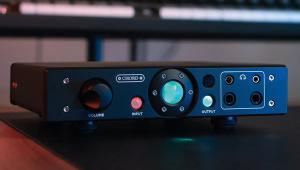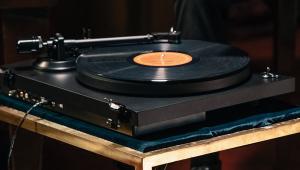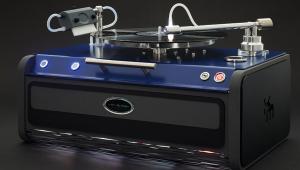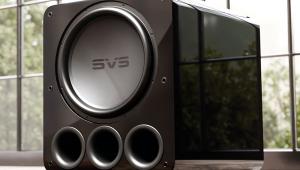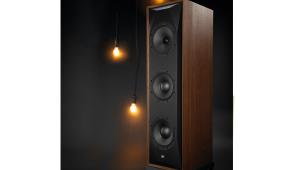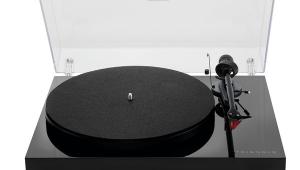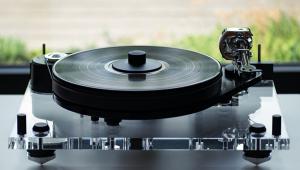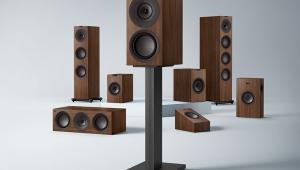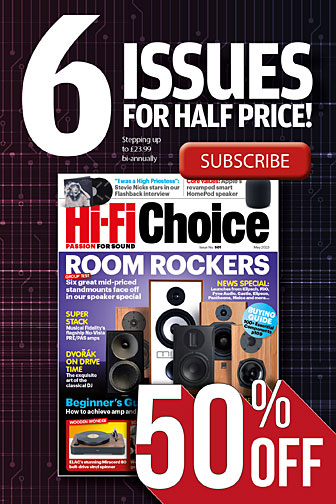Pro-Ject T1 Phono SB
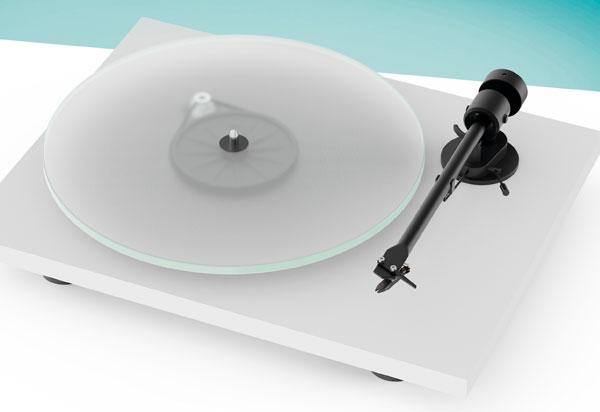
 Any attempt to commit the Pro-Ject turntable range to memory would be a passable Mastermind subject. The number of models that the company builds is vast and, at times, there seems to be an inexplicable level of overlap to them. At first glance, the T1 Phono SB looks like it sits in the latter category with barely any breathing room between it and the more affordable Primary series below it and Essential above. In reality, it is the first rung on the ladder for specialist dealers, with the Primary aimed more at the mass market.
Any attempt to commit the Pro-Ject turntable range to memory would be a passable Mastermind subject. The number of models that the company builds is vast and, at times, there seems to be an inexplicable level of overlap to them. At first glance, the T1 Phono SB looks like it sits in the latter category with barely any breathing room between it and the more affordable Primary series below it and Essential above. In reality, it is the first rung on the ladder for specialist dealers, with the Primary aimed more at the mass market.
The basic ingredients of the T1 Phono SB appear conventional enough. It’s an unsuspended, belt-driven turntable that follows an underlying design pattern dating all the way back to the original Debut. Look a little closer, though, and it shows some intriguing differences to the other affordable models. All three versions make use of an 8.6in tonearm in the traditional Pro-Ject fashion, but the arm itself combines a tube that has a close resemblance to the version used on the Essential, with a bearing that is more akin to the Primary. This has a fixed antiskate and comes with the counterweight already fitted and set (very accurately, it has to be said) for the Ortofon OM5e moving-magnet cartridge that it comes supplied with.
Like all arms of this type, there are arguments for and against such a design. If you are wedded to the idea of your turntable being something that you can augment over time, the fixed antiskate makes this largely impossible (although a stylus upgrade would be simple enough). The counter to this is that setting the T1 Phono SB up is a breeze and doesn’t require a tracking force gauge. Quite how many turntables at this price point ever get to experience such upgrades is also open to question, so Pro-Ject has almost certainly done its homework in this respect.
Another refinement that helps setup as well as performance is that it makes use of a sub platter that the drive belt acts on. This should reduce interference on the playing surface, but also makes fitting the drive belt a great deal simpler than on the variants that have it run around the outer edge of the platter. This is made from glass and aside from the obvious boost to aesthetics that it offers, ensures that there is more mass available in a given volume in comparison with the MDF platters featured on the simpler models.
There are three versions of the T1: a basic one for connection to a phono stage, the version seen here with a switchable phono stage on board and one that has both the phono stage and the means to stream your records to a Bluetooth receiver. The middle option of the three is the most interesting as it also includes an electronic speed control, which makes it one of the most affordable models I can recall seeing with such a feature. For reasons I don’t fully understand, this is not available on the Bluetooth model which, if your connection options are wired, makes it look like the sweet spot in the range.
Where all of the T1 variants have an advantage over some of the other Pro-Ject decks is that as well as making them ridiculously simple to set up, the refinements to the arm and platter have also resulted in one of the best-looking affordable turntables going. The simplified bearing housing and the glass platter with no visible belt help to give the turntable clean and uncluttered lines that are further abetted by a good choice of finishes that includes black, white and walnut.
Some more traditional Pro-Ject virtues remain, too. A decent-quality grounded interconnect is supplied and the feet, while fairly basic in their design, are unusually effective at isolating the playing surface from its surroundings. The T1 Phono SB also manages to avoid feeling cheap. The build quality is solid and the details are nicely worked out. I can’t remember installing any turntable that went together as logically and easily as this one does. It really should take no more than five minutes between popping the seal on the box and spinning a record – even for a complete novice.
Sound quality
With the setup completed, the T1 Phono SB demonstrates some other positive attributes. Connected to a Cambridge Audio Edge A and Kudos Titan 505 loudspeaker (HFC 451), there is no sign of any unwanted hum or noise from the turntable at idle, even without either ground connection on the supplied interconnect secured. For a product that uses a wall-wart power supply, this is no small feat. Pitch stability is also good, with only the slightly agonised groan that the review sample displays on startup counting against it. This means that every positive performance attribute that the T1 Phono SB possesses is aided by decent underpinnings.
The good news is that there are plenty of positives to the manner in which it plays records. A word that frequently repeats itself in my notes is “energetic”. The memorably odd Cool, Dry Place on Traveling Wilburys, Vol 3 is delivered with a spring in its step and an impressive, head-nodding flow. This is an affordable, lightweight chassis and this means that the absolute bass weight on offer is going to be limited compared with more sophisticated rivals, but the low end that the T1 Phono SB does possess is wielded with commendable dexterity.
Further up the registers, the news is also good. Tom Petty’s distinctive drawl is convincingly reproduced and while the soundstage that the Pro-Ject creates isn’t enormous, there is a convincing portrayal of the band itself performing as a group with believable layering. The upper registers can come across as a little bright at times; listening to the trad eighties production of Fischer Z’s Red Skies Over Paradise – which is a fairly hot pressing – can see a little sibilance creep in from time to time.
Given a good-quality pressing, though, like the 45rpm repress of Peter Gabriel 3 (Melt), the T1 Phono SB does enough to ensure that you forget the medium and enjoy the material instead. The unsettling emotion of Family Snapshot is something that it effortlessly extracts from the recording and this slow building track that starts from a very deep level highlights the low noise floor to help preserve the dynamics of the recording. One welcome if slightly mysterious benefit is that it seems less susceptible to end of side distortion than Pro-Ject’s Primary – which shares the same cartridge and pre-aligned settings.
An extended period trying out a wide selection of material only serves to underline this observation. With the caveats about brighter pressings already mentioned, there isn’t much that will unsettle the T1 Phono SB or cause the performance to be anything other than very enjoyable. Spending more money will naturally yield better results, but it doesn’t need to make any apology for what it is. What is interesting is that, although some time has elapsed since I tested them, it feels closer to Pro-Ject’s Essential III (HFC 420) in what it does than the Primary (HFC 444). It also makes for a very effective alternative option to its main rival at the price.
The only real shortcoming of the Pro-Ject isn’t really perceivable from taking it out of the box and using it, as is. We’ve covered that the cartridge is effectively a fixed object, but there is a wider sense that the whole turntable is too. Switching the phono stage out of the circuit and connecting the T1 Phono SB to a Cyrus Phono Signature phono stage (HFC 408) doesn’t really yield any significant improvement and neither do tests with isolation platforms and mains treatments. It is, essentially, very much as it appears and while it is a very good record player for under £300, there isn’t a hidden reserve of potential to be unlocked with add-ons. As noted, the number of people who will do this probably isn’t that high, but there are options available for similar money that do have a bit more room for manoeuvre.
Conclusion
This should not distract from what is a very likeable and capable turntable that manages to do the things we expect from an affordable Pro-Ject and combine it with a newfound elegance to the aesthetic. This means that the slightly frumpy appearance of some of the affordable models of old has been well and truly banished. If you are looking for a turntable that will be up and running in minutes and is able to deliver an engaging performance, the T1 Phono SB is an ideal place to start. ES
DETAILS
Product: Pro-Ject T1 Phono SB
Type: Belt-drive turntable
FEATURES
● 33 and 45rpm
● 8.6in aluminium tonearm
● Ortofon OM5e MM cartridge
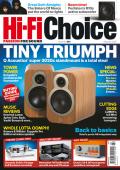 |
Inside this month's issue:
Q Acoustics 3020c standmount loudspeakers, Perlisten R10s active subwoofer, Quad 33 and 303 pre/power amps, Acoustic Solid Vintage Full Exclusive turntable, newcomer Fell Audio Fell Amp and Fell Disc and lots, lots more...
|
